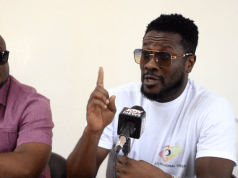Ghana has started taking steps to cost its natural resources, including land, water, fisheries and minerals into market and non-market values.
This is to evaluate and understand the contribution natural assets and the ecosystem services provide to the economy.
The initiative, christened the National Capital Accounting (NCA), will provide insights into natural resource’s income and how the economy impacts the resources.
Dr Kwaku Afriyie, the Minister for Environment, Science, Technology, and Innovation, said this in a speech delivered on his behalf at the opening of a maiden forum on NCA for Sustainable Development in Accra.
He said by implementing NCA, the country would have a comprehensive database that would enable it to model potential scenarios for changes in ecosystem integrity.
“It provides summary data on the physical flows of ecosystem services and the related monetary transactions, allowing us to create practical indicators,” he said.
“For instance, we can compare the economic value of water and energy use in mining, determine the monetary worth of mineral resources, evaluate the climate impacts of economic activities, and assess pollution intensity based on demand categories and consumer groups like households and industries.”
Dr Afriyie said the country’s ability to know the working of its resources would support the implementation of the Kunming-Montreal Global Biodiversity Framework and provide the necessary data for national reporting on the targets of the Global Biodiversity Framework, especially target 14.
The target urges Parties to fully integrate biodiversity and its multiple values into policies, regulations, planning and development processes, poverty eradication strategies, strategic environmental assessments, environmental impact assessments, and national accounting.
He stated that the availability of comprehensive data could be used to determine the underlying implications of exploiting Natural Capital under Business-As-Usual conditions.
Mr. John Ampontuah Kumah, a Deputy Minister of Finance, said the country had witnessed a growing realisation that its economic prosperity was intricately intertwined with the health and resilience of the natural environment.
He noted that the depletion of natural resources and the degradation of the ecosystems posed ecological challenges and economic risks.
“It is imperative that we adopt a comprehensive approach that recognises and accounts for the true value of nature in our decision-making processes,” he said.
Mr Kumah said the economic value of ecosystem services was often overlooked and that the country’s inability to place value on its resources resulted in abuses.
He called on stakeholders to support the government to address data gaps, develop robust methodologies, and build institutional capacities to ensure the accuracy and reliability of natural capital assessments.
Dr Christin Asare, Deputy Director in Charge of General Services at the EPA, said
the unsustainable management of natural capital was an ecological, social, and economic liability and could be catastrophic for the Ghanaian economy with the decline in productivity and resilience over time.
“If we are going to be able to sustainably manage our natural capital, then there is a strong need to use quality, reliable, and timely data, and statistics which can be generated through NCA, which is guided by the United Nations System of Environmental-Economic Accounting (SEEA) Central Framework to better inform policy and decision-making.”
That, she said, would support processes aimed at monitoring and tracking progress on the implementation of the Sustainable Development Goals and other Multilateral Environmental Agreements.
The World Bank is currently supporting the Government of Ghana in mainstreaming natural capital values and information into development dialogue and planning.
Through the Global Partnership for Sustainability, the project was implemented by a working group with a World Bank consultant.







































